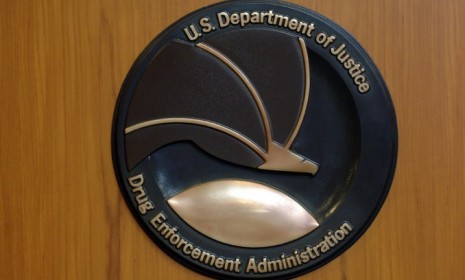The DEA's 'questionable' request for ebonics translators
The Justice Department wants to hire linguists who can translate bugged calls between people speaking black English

A free daily email with the biggest news stories of the day – and the best features from TheWeek.com
You are now subscribed
Your newsletter sign-up was successful
In what sounds like the setup for a comedy sketch, the Justice Department is seeking experts in "ebonics," or black English. According to The Smoking Gun, a Drug Enforcement Administration office in Atlanta wants to hire up to nine experts in the slang-heavy dialect to help translate wiretapped conversations between African-American suspects. "Hiring translators for languages that are of questionable merit to begin with is just going in the wrong direction," says a representative of English First, a group that advocates English-only laws in the U.S. Does the DEA really need linguists to understand bugged calls between English-speaking Americans? (Watch a local report about the need for ebonics translators)
Ebonics isn't a language, just a way of speaking: The government can't be serious, says Jonathan Capehart in The Washington Post. First of all, "jive," as ebonics was once known, "ain't even a language." It's just a relaxed way of speaking — lopping off words, running them together — that millions of African Americans can slip in and out of with ease. The DEA has some "chutzpah" treating it like some mysterious foreign code.
The Week
Escape your echo chamber. Get the facts behind the news, plus analysis from multiple perspectives.

Sign up for The Week's Free Newsletters
From our morning news briefing to a weekly Good News Newsletter, get the best of The Week delivered directly to your inbox.
From our morning news briefing to a weekly Good News Newsletter, get the best of The Week delivered directly to your inbox.
Actually, black English is a recognized dialect: The "outrage" over the use of the word "ebonics" is understandable, says Xeni Jardin at Boing Boing. The term has had "racially-charged" overtones since 1996, when a Californian school board proposed using "ebonics" to teach black students. But African-American English is a recognized dialect with roots dating back to slavery. It has "an important place in American cultural history."
"Justice Dept. hiring 'ebonics experts' for drug enforcement spying operations"
Ebonics experts might not be what the DEA needs: Federal drug agents probably do have a hard time understanding black English, says Boyce Watkins at AOL's Black Voices. But even those well-versed in ebonics will struggle to help them. These criminals use code words that the "rest of urban black America" is unlikely to understand. Surely the DEA would be "better off hiring a former drug dealer"?
"DEA seeks ebonics experts to help with cases? ... Seriously"
A free daily email with the biggest news stories of the day – and the best features from TheWeek.com
-
 Minnesota's legal system buckles under Trump's ICE surge
Minnesota's legal system buckles under Trump's ICE surgeIN THE SPOTLIGHT Mass arrests and chaotic administration have pushed Twin Cities courts to the brink as lawyers and judges alike struggle to keep pace with ICE’s activity
-
 Big-time money squabbles: the conflict over California’s proposed billionaire tax
Big-time money squabbles: the conflict over California’s proposed billionaire taxTalking Points Californians worth more than $1.1 billion would pay a one-time 5% tax
-
 ‘The West needs people’
‘The West needs people’Instant Opinion Opinion, comment and editorials of the day